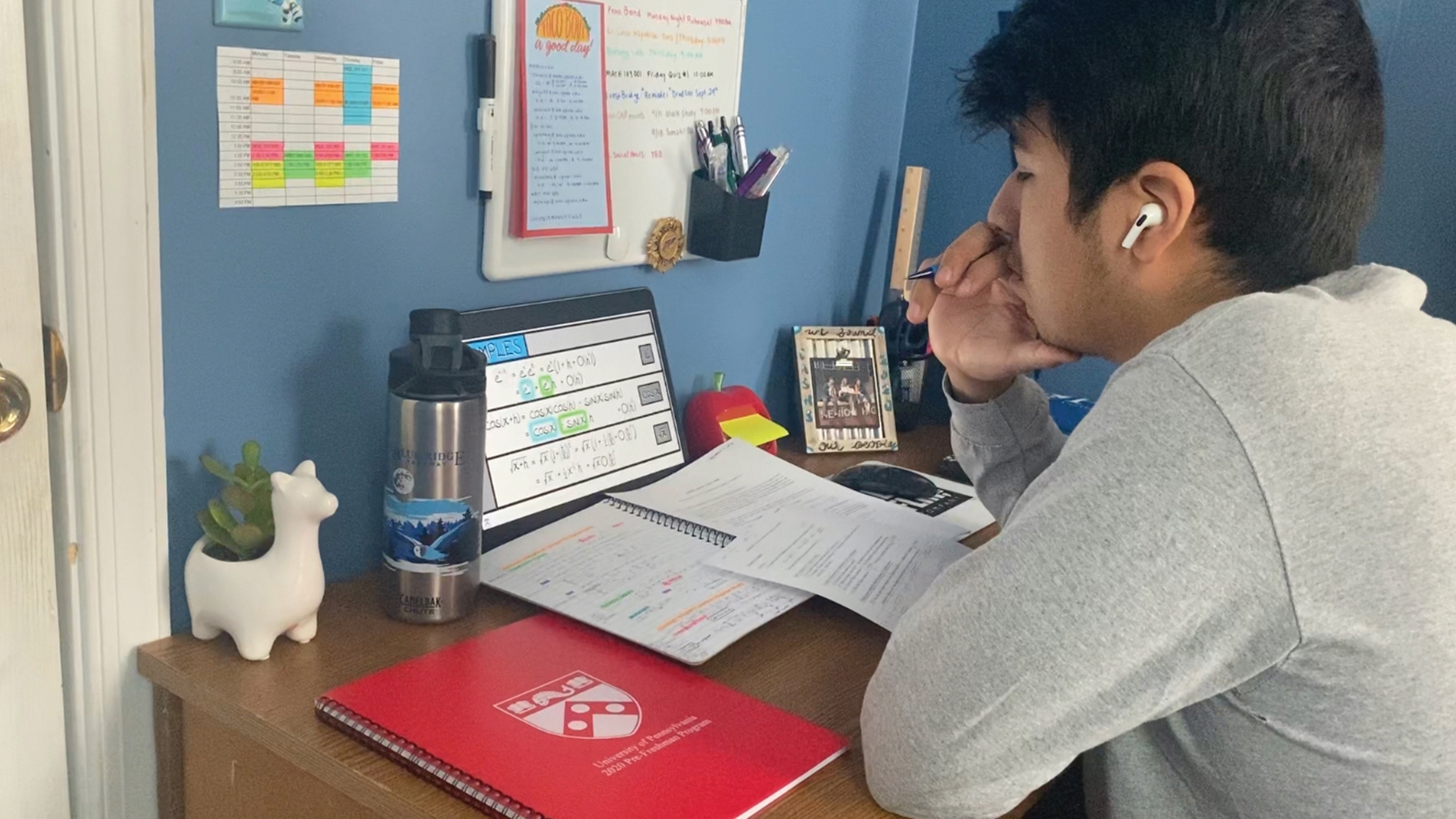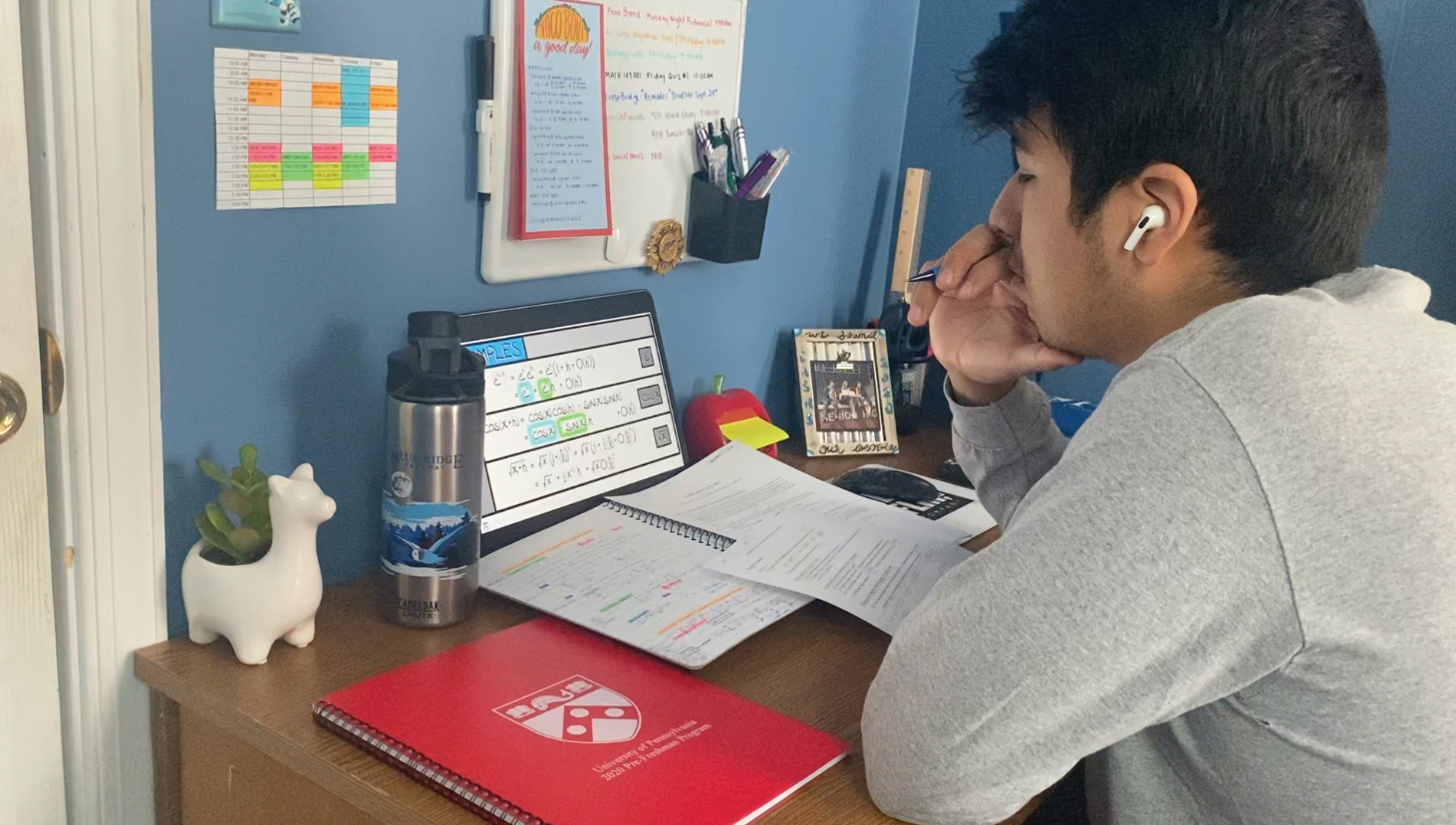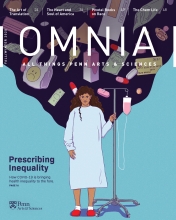A (Remote) Place of Belonging
Conducted online for the first time, the Center for Africana Studies Summer Institute for Pre-Freshmen continues to cultivate human connection.

Fostering community is a top goal of the Center for Africana Studies Summer Institute for Pre-Freshmen, which hosts incoming first-year students for a tuition-free, week-long deep dive into intellectual and cultural themes in African and African-diaspora studies. Held July 18-24, the program’s 34th rendition faced first-time challenges as the COVID-19 pandemic forced intimate, interactive activities to move onscreen.
The institute matches undergraduates with a graduate fellow who provides support both academically and personally; undergraduate Africana studies students and summer institute alumni also served as mentors to prepare this year’s cohort for the college experience and course work as well as to build community.
Eduardo Mejia-Garcia, C’24, who plans to major in neuroscience, connected with his new peers through class discussions, as well as virtual game nights. “Everybody was so welcoming, it felt like a small community I really belonged in,” he says, noting that he grew especially close with “his” graduate fellow, Joseph Thomas, a Ph.D. student in English.
“Instead of just looking at the literary aspects of a novel, we got a deeper cultural understanding through ideas of the African diaspora and colonialism and intersectionality, which were completely new to me,” he says of “Black Cool,” a course taught by Margo Natalie Crawford, Edmund J. and Louise W. Kahn Professor for Faculty Excellence, Professor of English, and Director of the Center for Africana Studies.
As rigorous as their courses were, students were able to enjoy themselves. Aspiring architecture major Jayla Rhodes, C’24, recalls analyzing the Netflix show “Dear White People,” which depicts Black students’ experiences at an Ivy League institution. The exercise took place in the course “Young, Gifted and Diverse,” which was taught by Camille Z. Charles, Walter H. and Leonore C. Annenberg Professor in the Social Sciences and Professor of Sociology and Africana Studies, who also directed the summer institute.
“This is an important part of what we, as faculty, do in the summer institute,” says Charles. “We create spaces for students to have conversations about racism, race relations, inequality, and other topics in our courses, and we do this in a way that engages everyone. We participate in an active, vibrant learning experience, one that is impactful and transformative for both students and faculty.”
Jasmine E. Johnson, Assistant Professor of Africana Studies, taught an institute class on Black popular culture. During a year of multiple pandemics, “one of them being anti-Blackness,” she says, candid conversations are essential.
“Students appreciated the opportunity to talk explicitly and develop ways to make sense of what’s going on,” she says. “From the start of their undergraduate careers, these students know there is no way to understand global history without understanding Black people—not just their extraordinary contributions, but the embeddedness of race and power in our world.”




